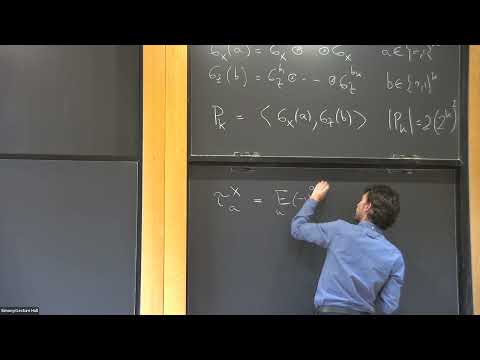Abstract
The question of stability of approximate group homomorphisms was first formulated by Ulam in the 1940s. One of the most famous results in this area is Kazhdan's 1982 result on stability of approximate unitary representations of an amenable group, when approximation is measured using the operator norm. More recently, motivated in part by the study of group soficity and hyperlinearity, the study of stability has been pursued for an increasing variety of notions of approximation.
One of the key technical ingredients in the resolution of Tsirelson's problem is a notion of "efficient" approximate stability, and its demonstration for a specific family of finite non-abelian groups, the Weyl-Heisenberg groups. In this (mostly self-contained) lecture I will formulate the efficient stability result, give some proof ideas, and explain its use for the compression procedure introduced in the second lecture.
